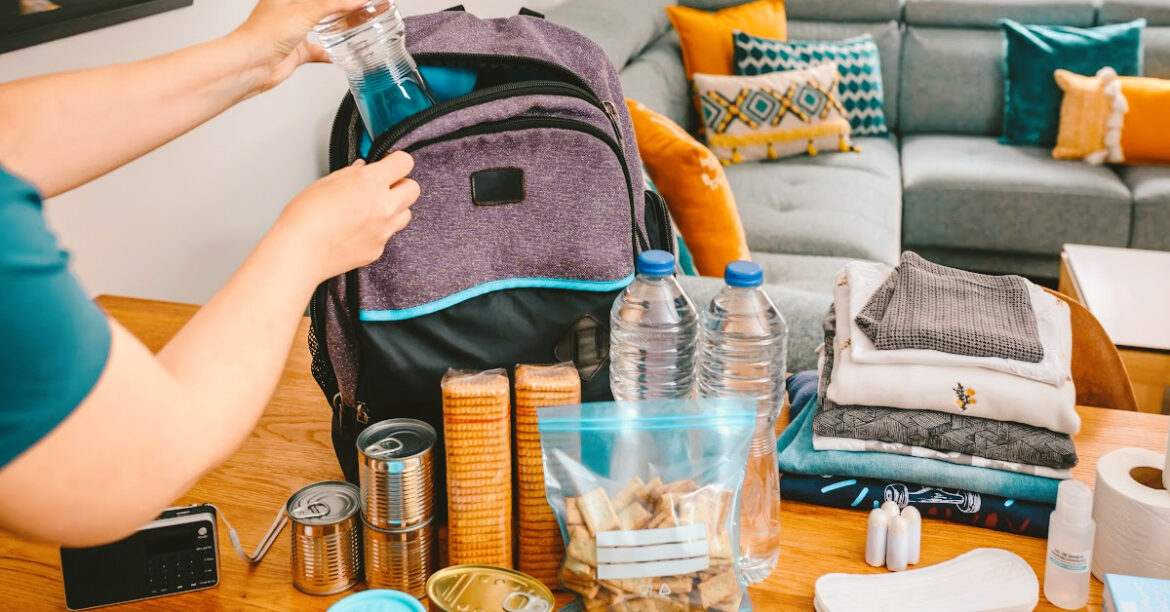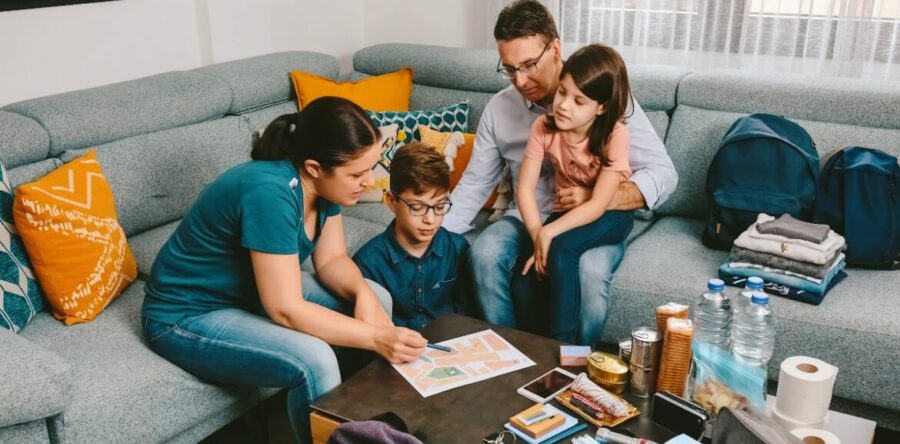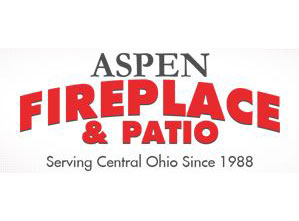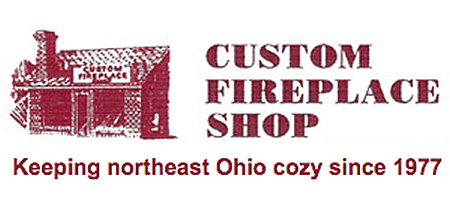This is not a how-to article on how to survive for weeks after the apocalypse hits. This is intended to be a commonsense approach to keep your family and loved ones safe, warm and well-fed during an emergency. Whether it’s for a day or two or a couple of weeks, if a weather-related event takes out your power or an equipment failure puts a strain on the power grid, it’s always best to be prepared.
You’ll notice the words “commonsense” several times in this article. And, for good reason, it goes a long way toward making solid choices and decisions regardless of the circumstances.
START WITH ESSENTIAL SUPPLIES AT HOME
Hopefully, you already have most of these items in your home. If not, give some thought to picking up what you don’t have on hand and then organizing them so you can find them quickly.
- Water
- Phone, with solar charger & helpful apps
- Flashlight
- Pocket knife
- Multi-tool
- Lighter or matches
- Paracord
- Emergency medical kit, with pain reliever & medical gloves
- Notebook & pencil
- Self-defense weapons, such as pepper spray
- Spare batteries
- Cash in case credit cards don’t work
- Emergency NOAA radio
- List of names, addresses & phone numbers of emergency & family contacts
- Hand & dish soap
- Emergency blanket & rain poncho
- List or file of important documents
- Medications & copies of prescriptions
- Glasses/sunglasses
- Extra clothes
- Nonperishable/canned foods
- Toiletries and other personal items
- Whistle
- Comfort items for the kids
Home is where you spend most of your time, so staying there makes the most sense during an emergency. Your goal is to be able to survive in your home without any type of outside contact. That means no electricity, water, dining out, furnace and refrigerator not running, no 911 or internet service, etc.
PLANNING FOR AN EVACUATION
If staying at home is not possible, have an emergency family plan in place. Agree on a specific location where loved ones can shelter and meet in case you are separated. It’s also a good idea to have a contact person outside your immediate area who can act as a liaison and keep you and your family updated with any pertinent information.
Another critical preparation is to organize a ‘go bag’. Just what the name implies: you want to grab it and, if necessary, skedaddle. Depending on the size of your household, a large waterproof backpack works great. It’s already been packed with those things listed above and any other commonsense items to help you through a crisis. Often, time is of the essence, so pack it ahead of time and you won’t be searching all over the house or wishing later you had something specific in it.
Don’t pack a go bag and forget about it. Have a list of the contents in a side pocket and check it periodically to make sure nothing is outdated, spoiled or missing or you haven’t outgrown that change of clothes.
There’s a tendency to overpack a go bag. Keep it at 1/4 to 1/3 of your body weight in case you end up walking any distance.

And don’t forget about planning for Felix and Fido. Have pet food in containers, an extra leash, a crate if possible and a water dish prepared.
Whether it’s a natural disaster such as a flood, tornado, hurricane, civil unrest, an epidemic or a failure with the power grid, other common items on your emergency list should include the following:
- Water, roughly 15-20 gallons and a portable water filter
- Canned or shelf stable food that’s ready to eat or only needs boiling water
- Heating with a free-standing wood burning stove or fireplace
- Magnesium fire starter
- Candles or lanterns
- Dutch oven and cast-iron cooking equipment
- Assorted hand tools along with an ax, shovel, tarps, duct tape, zip ties
FIRE FOR WARMTH AND COOKING
For the most part, the things listed above are commonsense items that a household should have on hand. But let’s talk specifically about fire. As you know, “We love fire”, and fire is the key to staying warm and dry, preparing meals and heating water. Practice gathering tinder and wood and starting a fire with your magnesium fire starter. An inviting fire also helps you maintain a positive attitude. And a positive attitude during an emergency is huge! Plus, it’s contagious!
Fire can be as simple as an open campfire in the backyard, a gas, wood or charcoal grill for cooking, or a wood-burning stove in your family room. One of the reasons this author has always been keen on stoves is because they do not need electricity to provide that wonderful radiant heat. Stoves, whether natural gas, LP, or wood-burning, can heat spaces ranging from a few hundred to a couple of thousand square feet, depending on their size. Additionally, it’s easy to heat water or pots of stew or soups on a stove top.

Woodstove/Cookstove Nectre N350 by Ambiance®
A grill on the patio can be a serious asset if you lose power. There are volumes written on cooking everything from kabobs to 20 lb. turkeys on your grill or smoker. Just make sure you have a spare tank of LPG or an extra bag or two of lump charcoal if you’re required to cook meals for any length of time. Keep in mind that a pellet grill/smoker will be out of commission during a power outage.
So, what about that fire pit or campfire in the backyard? This is where some evening and weekend practice would be a good idea with that cast-iron cooking equipment. Remember that cast-iron skillets need a little oil to prevent food from sticking, unless what you’re cooking is quite fatty. When using cast iron to cook, remember to raise temperatures slowly and to avoid high heat. Lower temps are better than higher ones.
There are several books devoted to cooking with Dutch oven and cast-iron cooking. Foods like grilled sandwiches, burgers, potatoes, pan-seared vegetables, chicken, pork, roasts, eggs, and even pizza and breads can all be prepared over an open fire or on a stove top. Practice and lower temperatures are the keys to successful cooking over a fire. Have fun experimenting and cooking different items with friends and family. And jot down a few notes about what worked well and what to avoid.
MAKING THE BEST OF CRISIS
Roughing it in times of trouble does not have to mean excluding great eating, staying warm and keeping relatively clean! A warm meal and the ability to heat water and clean up a bit can go a long way to weathering a power outage. Unknown neighbors have become lifelong friends because of an invitation to enjoy a warm meal or a sponge bath. There are stories every year about neighbors helping neighbors. Not surprisingly, the ones that are best equipped to handle an emergency are the most popular places to hang out!
Commonsense, along with solid planning, preparation and practicing now, will go a long way toward making a serious problem seem like a memorable family and even neighborhood adventure!










